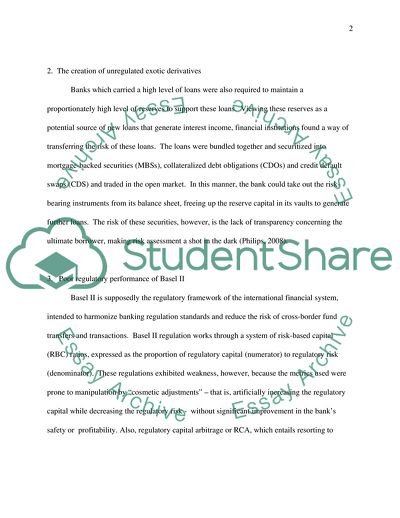Cite this document
(Main Causes of the Global Financial Crisis Essay, n.d.)
Main Causes of the Global Financial Crisis Essay. https://studentshare.org/macro-microeconomics/1733166-what-are-the-main-causes-of-of-the-global-financial-crisis-what-steps-could-the-uk-government-take-to-reduce-the-dangers-of-another-crisis-discuss-using-the-course-material-and-your-own-research
Main Causes of the Global Financial Crisis Essay. https://studentshare.org/macro-microeconomics/1733166-what-are-the-main-causes-of-of-the-global-financial-crisis-what-steps-could-the-uk-government-take-to-reduce-the-dangers-of-another-crisis-discuss-using-the-course-material-and-your-own-research
(Main Causes of the Global Financial Crisis Essay)
Main Causes of the Global Financial Crisis Essay. https://studentshare.org/macro-microeconomics/1733166-what-are-the-main-causes-of-of-the-global-financial-crisis-what-steps-could-the-uk-government-take-to-reduce-the-dangers-of-another-crisis-discuss-using-the-course-material-and-your-own-research.
Main Causes of the Global Financial Crisis Essay. https://studentshare.org/macro-microeconomics/1733166-what-are-the-main-causes-of-of-the-global-financial-crisis-what-steps-could-the-uk-government-take-to-reduce-the-dangers-of-another-crisis-discuss-using-the-course-material-and-your-own-research.
“Main Causes of the Global Financial Crisis Essay”. https://studentshare.org/macro-microeconomics/1733166-what-are-the-main-causes-of-of-the-global-financial-crisis-what-steps-could-the-uk-government-take-to-reduce-the-dangers-of-another-crisis-discuss-using-the-course-material-and-your-own-research.


